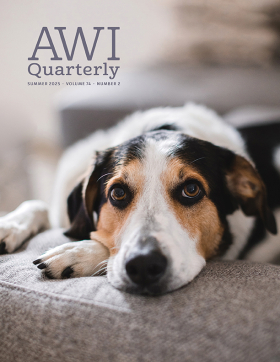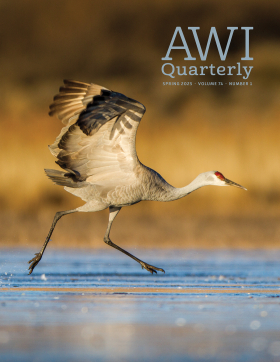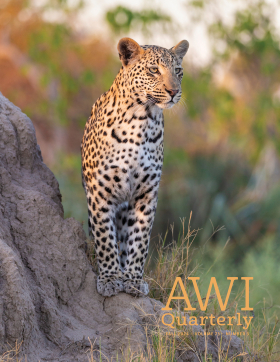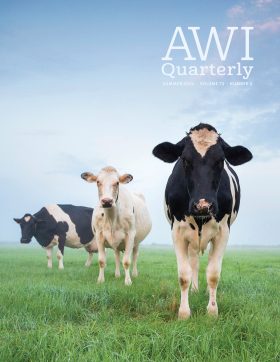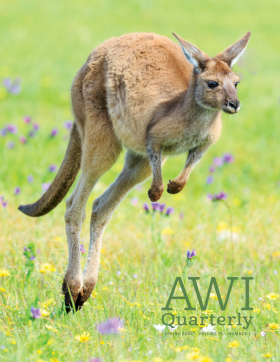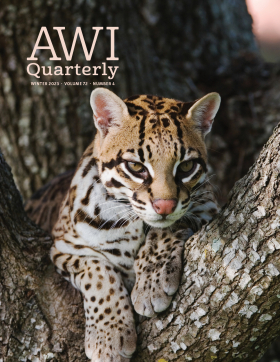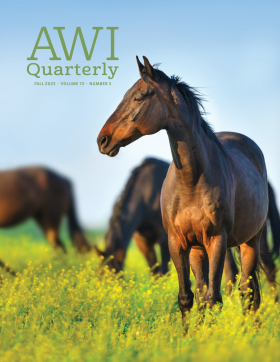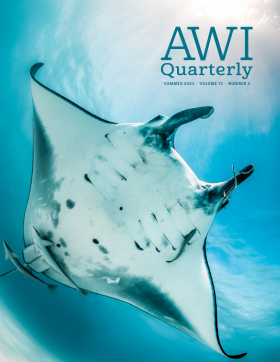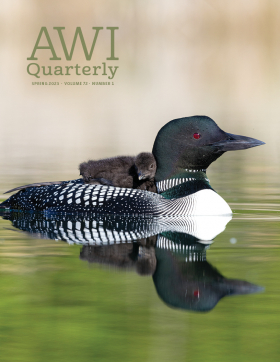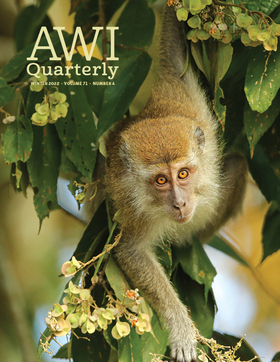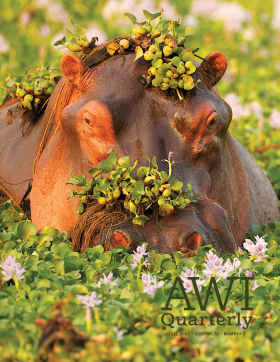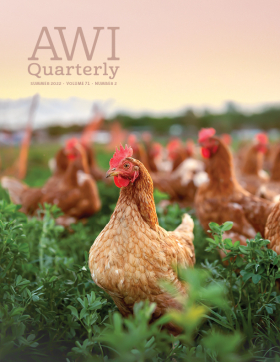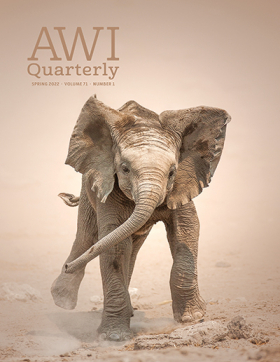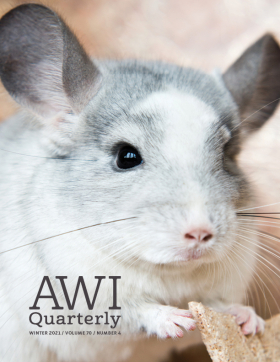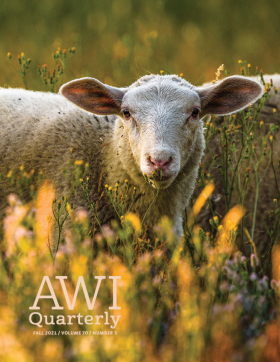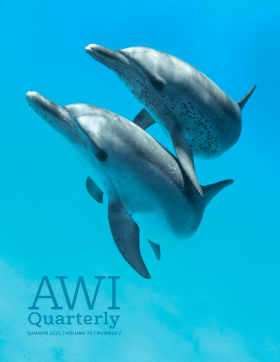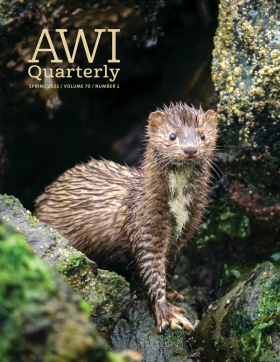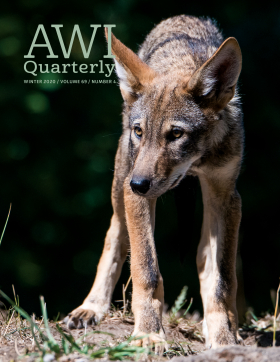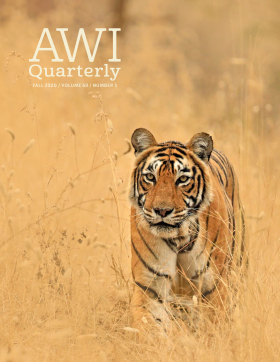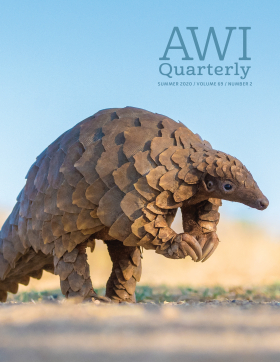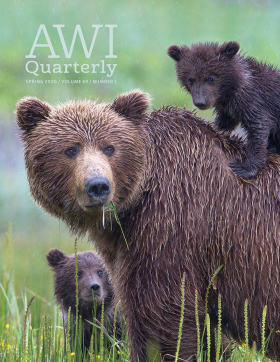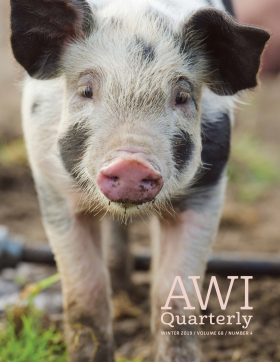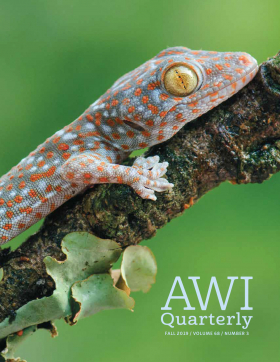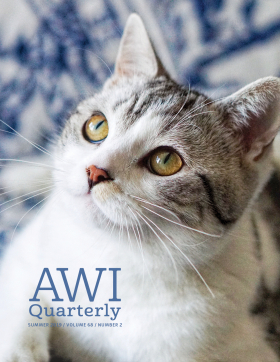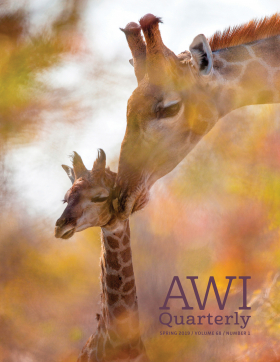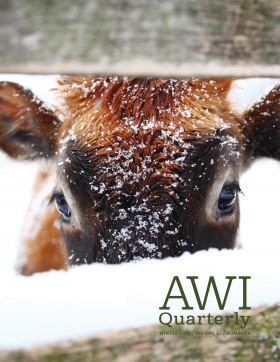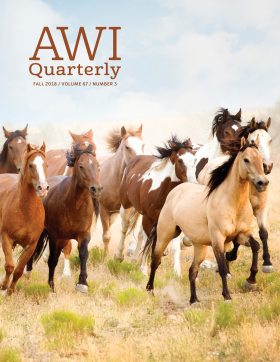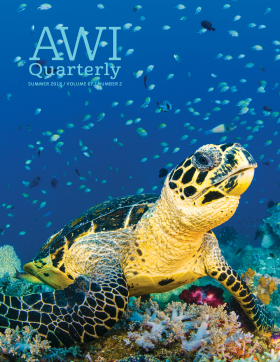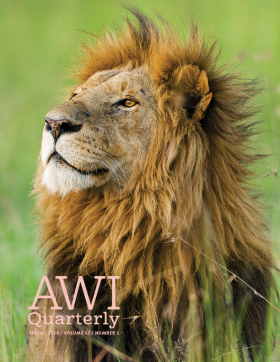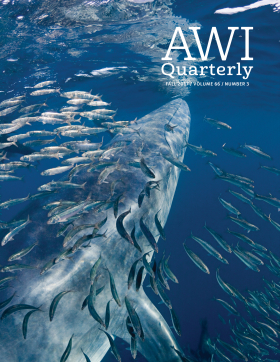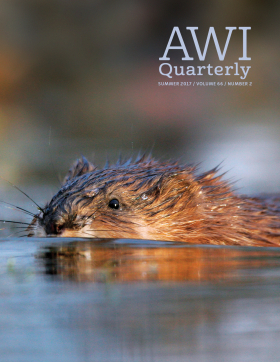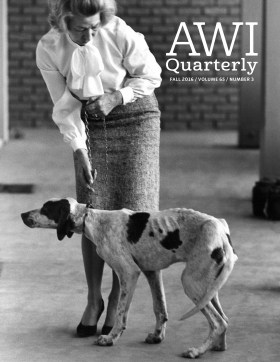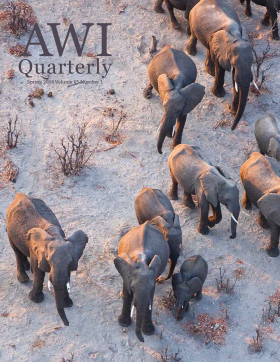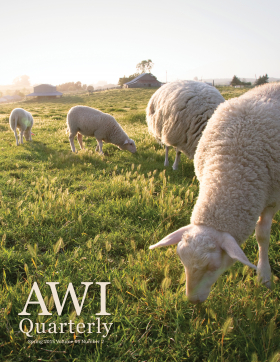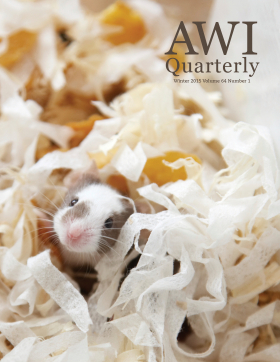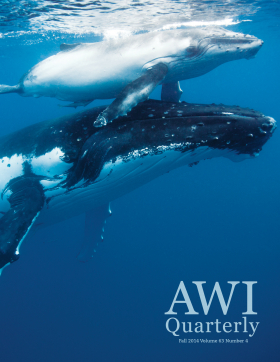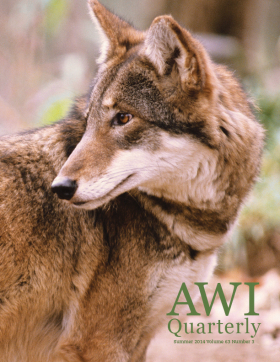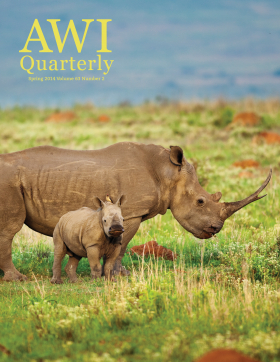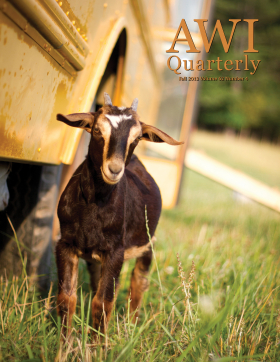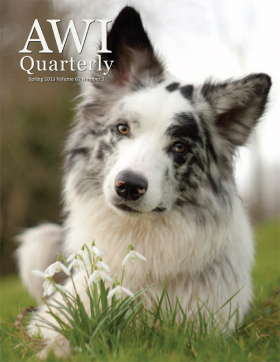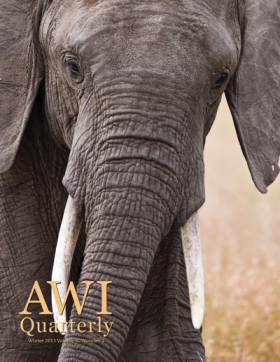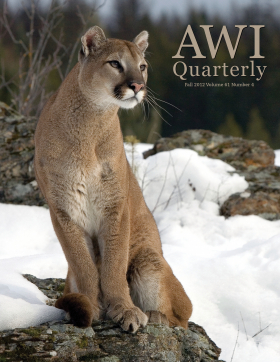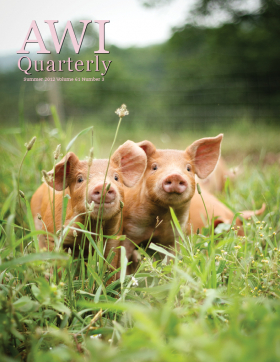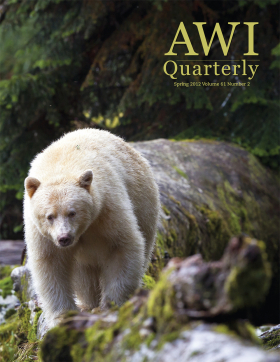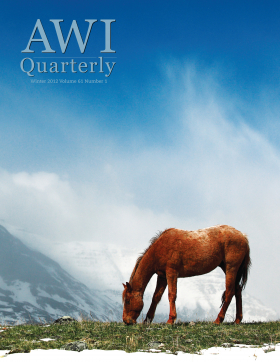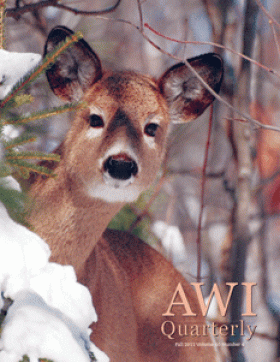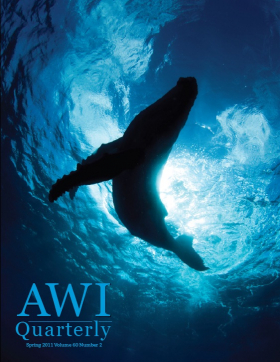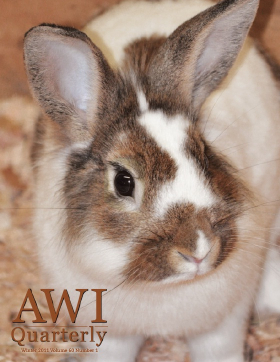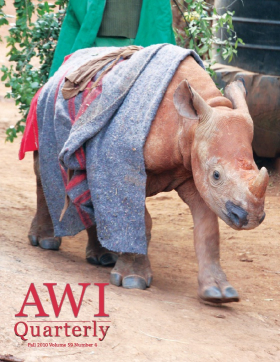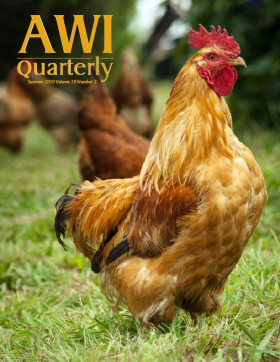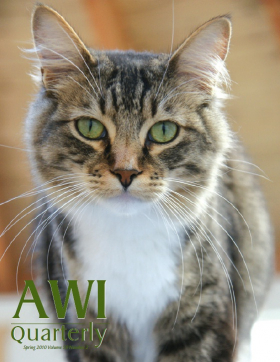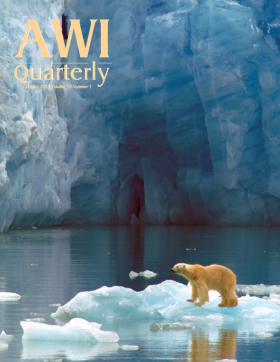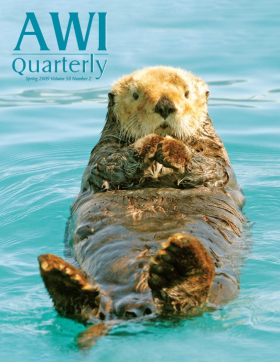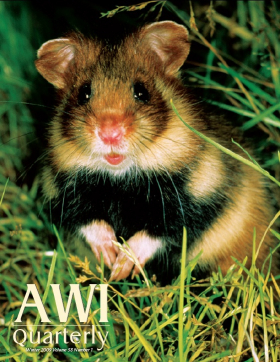The AWI Quarterly is the magazine of the Animal Welfare Institute. This full-color periodical examines issues regarding animals everywhere—in the laboratory, on the farm, in commercial trade, at home, and in the wild. It is distributed to over 46,000 individuals and organizations, including public libraries, deans of medical and veterinary schools, laboratory technicians, scientists, farmers, teachers, law enforcement officers, shelters, animal protection organizations, members of Congress, and AWI members.
A subscription of the AWI Quarterly—available in both print and digital form—is included in your AWI membership. In addition to the AWI Quarterly, AWI membership includes an opportunity to receive free copies of our books and other materials as they are published. Click here to join AWI today.
AWI’s Safe Havens for Pets directory expands to include shelter services for unhoused people with pets. An AWI report addresses the USDA’s chronic failure to curb cruelty at slaughterhouses. Colorado cracks down on wildlife trafficking, while in our nation’s capital, the outlook for animals is increasingly dire, as the Trump administration dismantles federal conservation and animal research programs, eviscerates long-standing environmental laws, and throws open vital habitat to extractive industries. Internationally, AWI celebrates an animal welfare champion, and commercial whalers encounter a collapsing market.
View the Summer 2025 PDF
Learn about the current unprecedented political attacks on bedrock animal protection and conservation laws and what animal activists can do to help. AWI and allies achieve a major legal victory to help reduce marine mammal deaths in commercial fishing gear. AWI pushes for more humane, effective ways to address bird flu in industrial egg and poultry operations. A look at the profound effects a surging demand for monkeys has had on the animal research landscape. AWI children’s books boost humane education efforts in Puerto Rico.
View the Spring 2025 PDF
AWI reports from the 69th meeting of the International Whaling Commission. The outlook for animal welfare and the environment during a second Trump administration. Helping Mountain West communities become “Bear Smart.” USDA fails to clear confusion on animal welfare label claims. Horse advocates gather in DC and talk some horse sense into Congress.
View the Winter 2024 PDF
AWI reports from the CITES Animals Committee meeting in Geneva and its implications for wildlife protections in international trade. We press the USDA to help state officials clamp down on animal abuse in US slaughter plants. A new AWI initiative helps researchers and policymakers access valuable FBI data to study and address animal cruelty crimes. Supporting efforts to establish marine mammal protection areas in the Atlantic. Helping animal caregivers provide better lives to rodents and rabbits in research.
View the Fall 2024 PDF
We examine the scope and efficacy of state-level farmed animal protection laws, and we award the Schweitzer Medal to Dr. Temple Grandin for her pioneering work to promote more humane treatment of farmed animals. AWI and partners press the US government to implement long-overdue regulations aimed at reducing the death of marine mammals as bycatch in global fishing gear. Exposing the trade in exotic animal skins as a horror—rather than a fashion—show. AWI members help sanctuaries give new life to animals retired from research.
View the Summer 2024 PDF
